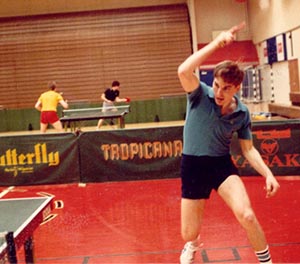Tip of the Week
When Playing an Unfamiliar Player, Focus on Serve & Receive.
Crazy Month
It's been a crazy month, and it's only getting crazier. Over the past month or so I've launched the State Championships Initiative and the Regional Associations Initiative, and the Regional Team Leagues Initiative will be out probably in a couple of weeks. (I'll blog about these more later.) MDTTC was named an ITTF Hot Spot. We've spent lots of time preparing players for the upcoming Team Championships (whether in Washington DC or Philadelphia) and for the USA Nationals in Las Vegas in December. I put together the Hall of Fame program booklet and the ad for the Hall of Fame Inductions for the Nationals program. Plus all the usual coaching (private and group), as well as the regular tutoring I'm now doing at the club, mostly in English. (If I listed everything I've crossed off my todo list for this past month, I'd have to use up all existing pixels in the universe as this blog would go from here to the farthest known quasars…) Oh, and four Tips of the Week and these daily blogs!


 Photo by Donna Sakai
Photo by Donna Sakai


